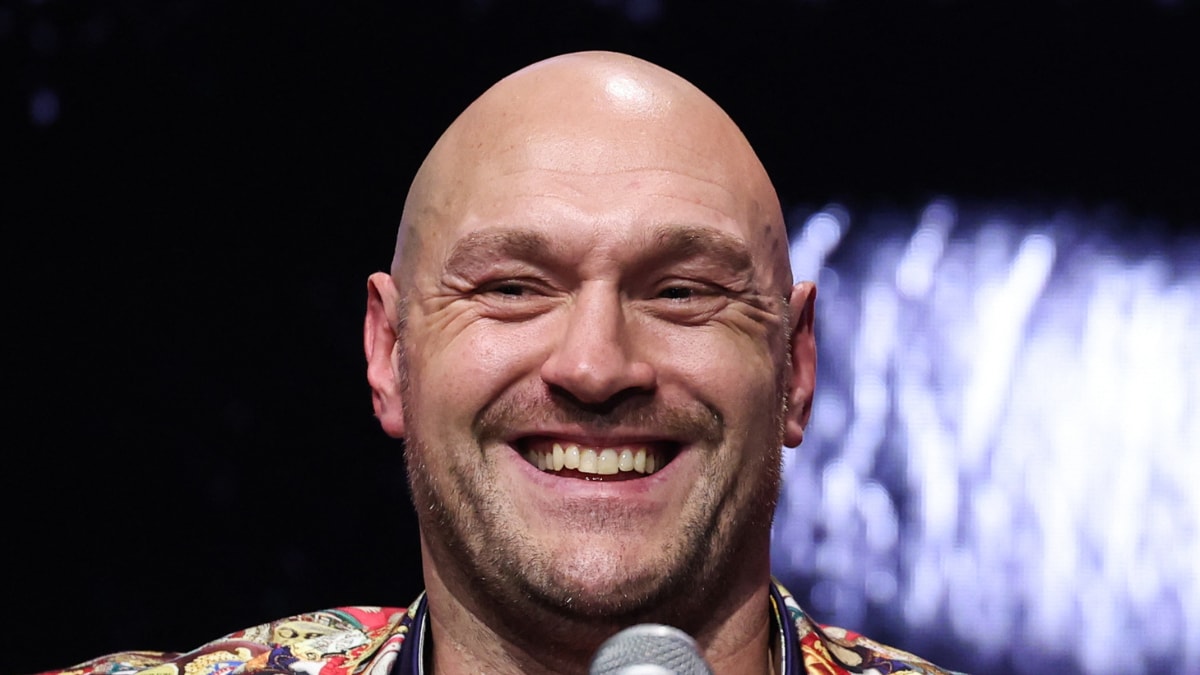Last Updated:
Tyson Fury retires after second loss to Usyk, but fans and experts doubt he’s done for good.

Tyson Fury has announced his retirement from boxing for the second time. (Image: AFP)
Tyson Fury has, not for the first time, announced his retirement from the boxing ring. But is this really the end of the road for the “Gypsy King”?
The towering 36-year-old British heavyweight called it a day on Monday, just weeks after his second straight defeat by Ukraine’s Oleksandr Usyk in Saudi Arabia.
“Hi everybody, I’m going to make this short and sweet,” he said in a post on social media, apparently filmed inside a vehicle.
“I’d like to announce my retirement from boxing, it has been a blast, I’ve loved every single minute of it.”
Fury enjoyed two stints as the heavyweight world champion and retires with a record of 34 wins, two defeats and one draw.
That is if he stays retired.
Fury has previously announced his exit on a number of occasions, most recently in April 2022.
But they all turned out to be short-term absences from the ring and many pundits are sceptical that this really is the end.
Fury’s promoter, Frank Warren, told the BBC Fury had become a “world star”.
“If you look at some of the fights he’s had, he’s not been in one fight that hasn’t been exciting,” he said.
Fury’s retirement appears to mean he will not take on another former world champion, Anthony Joshua, in a long-anticipated all-British showdown.
Joshua said at the weekend a fight with Fury “has to happen this year”.
On Monday, Joshua’s promoter, Matchroom’s Eddie Hearn, said he doubted that Fury was really gone for good.
The two-time heavyweight world champion, who stands six feet nine inches (206 centimetres) tall was born three months’ premature in Manchester in 1988, weighing just one pound (half a kilogram).
He was named after American boxing great Mike Tyson while his “Gypsy King” nickname comes from his Irish Traveller roots.
Fury turned professional in 2008 before becoming the British and Commonwealth champion with victory over Derek Chisora three years later.
In 2014, he beat Chisora again, this time for the European and WBO international heavyweight titles.
Depression and alcohol problems
Fury became a global name in November 2015 when he defied the odds to end Wladimir Klitschko’s decade-long heavyweight reign with a unanimous decision to take the WBA, IBF and WBO belts.
But his joy proved to be short-lived.
He ended up spending two-and-a-half years outside the ring, during which he battled depression, drink and drug problems, ballooning to more than 28 stones (178 kilograms).
Fury tested positive for banned steroid nandrolone in February 2015 but blamed the result on eating uncastrated wild boar.
He was cleared to fight again in December 2017 by UK Anti-Doping after accepting a backdated two-year ban.
“I woke up every day wishing I would not wake up any more,” he told the BBC in 2018 as he prepared to return to action.
“But I am living proof anyone can come back from the brink.”
Fury, a colourful character known as much for his behaviour outside the ring as inside it, famously dressed as Batman for a pre-fight press conference ahead of his fight with Klitschko.
But he has drawn criticism for controversial comments on a range of issues including homosexuality and the role of women.
Fury became a two-time champion by beating Deontay Wilder to claim the WBC belt in 2020 in the second of a trilogy of fights against the American.
He announced he was quitting boxing — again — after beating Britain’s Dillian Whyte in April 2022 but changed his mind and returned to action later that year.
He overcame a big scare against converted MMA fighter Francis Ngannou in 2023 before being handed his chances against Usyk in two unification fights, coming up short on both occasions.
“Probably been the best British heavyweight of his generation by far,” said Warren.
“Two-time world champion, two closely fought fights against Usyk. He’s got plenty of money, got his wits about him, got a lovely family. God bless him, enjoy.”
But do not hold your breath.
(This story has not been edited by News18 staff and is published from a syndicated news agency feed – AFP)
- Location :
United Kingdom (UK)


